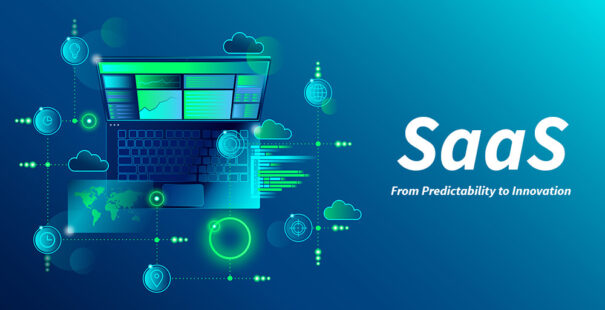The Benefits of SaaS: From Predictability to Innovation
Jens Hasche, partner at Simon-Kucher & Partners, outlines the benefits of the SaaS model for business transformation in this Tribune, provided by Dalet.
As one of the big buzzwords in recent years, it still seems necessary to shortly explain what “SaaS” really means. “SaaS” stands for “Software as a Service”. On the one hand side, it is a method of software delivery in which software is accessed online (often directly via a natural web interface) rather than installed on computers or accessed via VPN from company’s internal networks. On the other hand, it is a contractual model. Simply put, customers subscribe to the software instead of purchasing the license. Think of it like a subscription to Netflix instead of buying a DVD – or rather, all DVDs of all movies on Netflix. But what exactly are the benefits of SaaS?
When properly executed, moving towards SaaS is beneficial for both the solution provider and the respective end-customers. The media technology industry has been slower than others in adopting Cloud computing and SaaS-first solutions, but the pace is quickly accelerating. Dalet has been working on its Cloud strategy over the last ten years and is currently transforming all of its offerings to be available in a SaaS model.
Here is why you should “Go SaaS”, enabling continuous innovation and agility for your business.
 Benefits of SaaS for end customers
Benefits of SaaS for end customers
- Access to continuous innovation: Customers get immediate access to product improvements in the cloud without the upgrading and updating hassle of the past. Innovation cycles are significantly reduced, often to bi-weekly releases instead of 1-3 releases per year.
- Reduced administration time and costs: SaaS providers typically deal with infrastructure and management allowing their customers to focus on their core business. They control the security with dedicated professionals. The cloud offers endless scalability, which is key in a data-driven world. And reliability is proven to be higher with the availability of much better disaster recovery.
- Lower upfront costs: Without the initial license fee, lower upfront costs and – with that – a lower commitment is required to become a customer. While this is a clear benefit of SaaS, introduction of new software is still a significant commitment of time and money, and no company invests in the introduction, training and integration of Enterprise Software with the intent to churn after a few years. However, as the world turns faster and faster and decision periods are getting shorter, the hurdle of switching is going down with a subscription model.
- Higher cost predictability: While larger upgrades must be individually purchased for most perpetually licensed software (customers are only entitled to bug fixes and small updates), SaaS includes all updates and upgrades in one simple subscription fee.
- Most importantly – higher customer-centricity of the provider: As customers have not purchased the software but have a subscription with lower commitment, SaaS providers have to care more about customer satisfaction to avoid churn, leading to a more customer-centric business focus.
 Benefits of SaaS for technology providers
Benefits of SaaS for technology providers
- Better standardization and integration: In the cloud, there are not hundreds of systems running with dozens of versions of operating systems. Instead, more standardization of hardware and software leads to fewer issues. In addition, integration with other software is much easier through standardized interfaces.
- Faster, customer-oriented development and deployment: Through measurement of how the product is being used, SaaS providers better understand pain points and can address those immediately – from slight changes in the UX to the addition of new functionalities. Efficiency is a major benefit of SaaS and developments can be made available to customers without time-consuming implementation efforts.
- More agility: SaaS uses much more adaptable technology stacks which ultimately help to deliver faster innovations. This allows focusing on more value-adding development for customers instead of testing and bug-fixing.
A win-win solution
Companies offering their customers all the benefits of SaaS create a win-win solution that can be hard to beat. However, this transition is not just a change in the revenue or deployment model but a change in how the business needs to be run across the organization. This includes all departments, for example:
- Product development/Engineering: Embrace continuous customer-oriented development instead of major product-oriented upgrades
- Product management: Simplify the product with a focus on the user
- Customer service/success: Be proactive and ensure customer success based on actual data instead of providing only reactive support
- Sales: Focus on a long-term relationship instead of one-time “take the money and run” sales behavior
- Professional services: Provide fast time to value
- Finance: Focus on new customer-centric metrics (churn, satisfaction, usage) instead of billings or revenue only
In summary, successful SaaS providers focus relentlessly on being simpler to do business with, providing faster time-to-value and acting more as customer-centric partners to be successful. The team at Dalet is transforming not only their products, but also their internal processes and talent to deliver that promise.
Jens Hasche
Partner in the Software/Internet practice at Simon-Kucher & Partners.
Simon-Kucher is a global consulting company helping their clients grow with a focus on strategy, marketing, sales and pricing. Jens specializes in growth and competition strategies, product and pricing strategies, sales optimization and digital transformation. He primarily works with software, platform or database companies to develop or transition to new business, revenue or price models. His customers include large corporations as well as growth companies.
Gostou deste artigo?
Subscreva o nosso Alimentação e você não vai perder nada.

















